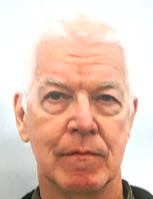As stated in the last message, there will be hundreds of activities on Palestine Land Day Saturday 30 March 2024. Our institute will have a meaningful activity in our botanic and community garden and museum grounds (11 AM to 1 PM). My previous messages on Land day explain its relevance and meaning to us (e.g. 2008 and 2011). For this land day, in line with more positive emphasis in my last two messages:
The Palestine Institute for Biodiversity and Sustainability at Bethlehem University (PIBS-BU) will be honoring its 10 year anniversary this year. We will have a series of meaningful events beginning 15 April 2024 (let us know if you are interested and we will send you more details). The story and achievements are inspiring for an Institute that serves sustainability of people and nature in Palestine. Our team just produced this seven minute *new video summarizing the work and this new booklet highlighting achievements and plans *(takes 30 seconds to load so be patient). These explain why we are all so proud and also so hopeful for an even better future. As explained in the booklet and practiced in the past ten years, PIBS-BU activities are forms of resistance to what ails us as society and as nature.
Staff, volunteers, supporters, and donors made these remarkable achievements possible. We are humbled and grateful to all. Yet we continue to dream bigger. As noted in the booklet, we can accelerate the work and build bigger with your (further) help:
- Donate
- Volunteer in person or remotely See below for examples of current needs*
- Collaborate with us on education, research, conservation, and community service (partnerships always welcome to serve our people and our nature)
- Visit or call us (970-22773553) or email us (info@palestinenature.org) to explore other ways to help and follow us on social media like
*Here are examples of actions for helping remotely:
1. For the new museum/exhibits
1.1 Research for different periods of Palestine & get text and photos: Paleolithic, Bronze age, Iron age,and the more modern eras including recent history of conflicts and their impact. We also focus on agricultural issues, domestication of plants and animals, and the history of civilizations.
1.2 Research threats that impact people and nature in Palestine (can publish also) like climate change
1.3 Develop interactive and AI design of exhibits in areas like the Nakba and conservation/sustainability
1.4 Develop the children's hall at the new museum (exhibits, toys, ideas)
2. Develop new educational programs
3. Research and publish with us. We have many ideas and our research covers areas from sociology to anthropology to human rights to genetics to biodiversity among others
4. Bridge science-policy-practice gaps vis a vis protection of people and nature with new ideas
5. Expand our community service projects including helping marginalized and threatened communities (children, women, Bedouins, people in Gaza)
To help on site, there are lots of work: gardening/farming, assisting with children activities, building furniture and other needed items (much from recycled material), administrative assistance, databases, cooking for fellow volunteers, specimen preparations (like the herbarium), field trips to collect data, community work with farmers, women workshops and much more. We have hundreds of tasks but also volunteers can be creative and come up with their own ideas. Some ideas may occur to you when you browse the new booklet or watch the new video.
Stay Human and keep Palestine alive
Mazin Qumsiyeh
A bedouin in cyberspace, a villager at home Professor, Founder, and (volunteer) Director Palestine Museum of Natural History
Palestine Institute of Biodiversity and Sustainability Bethlehem University Occupied Palestine
facebook pages Personal Institute




